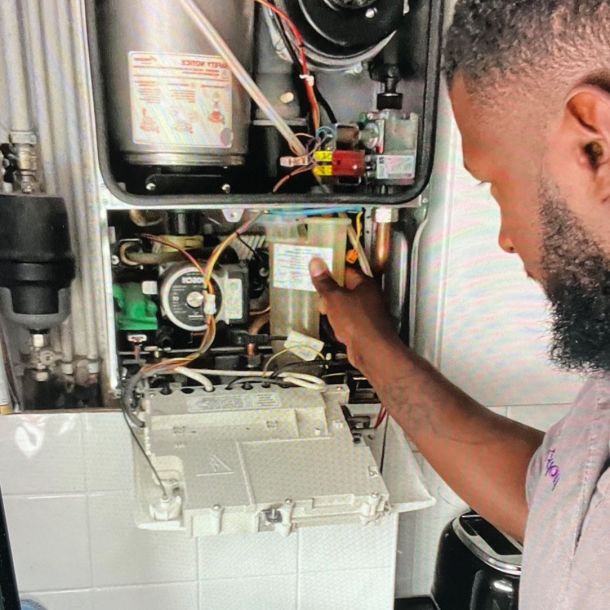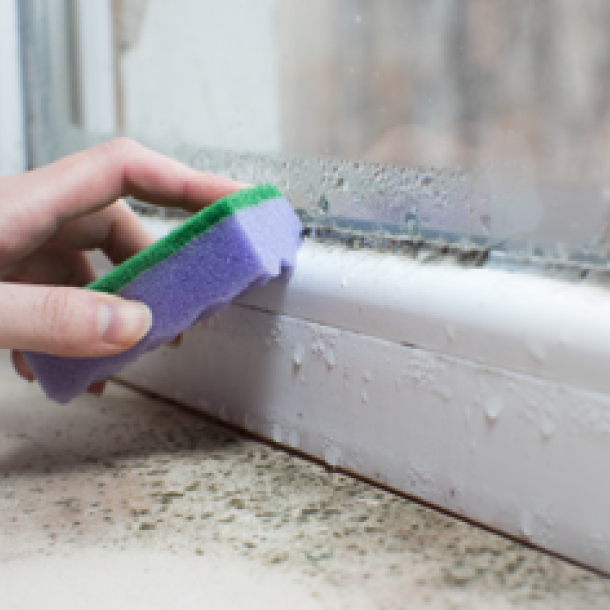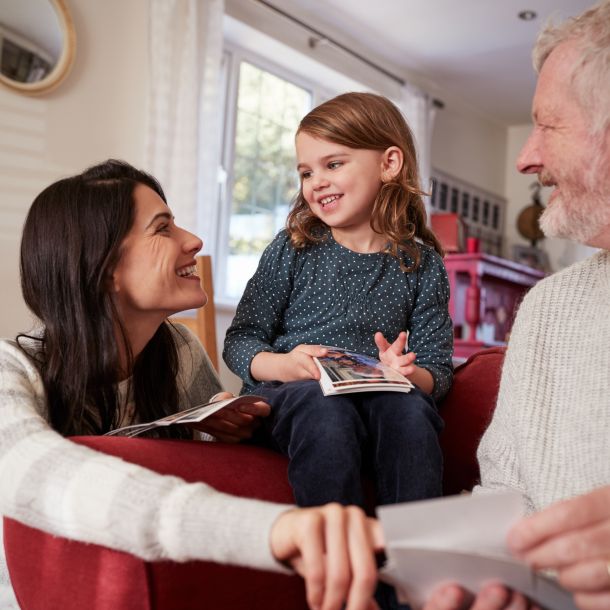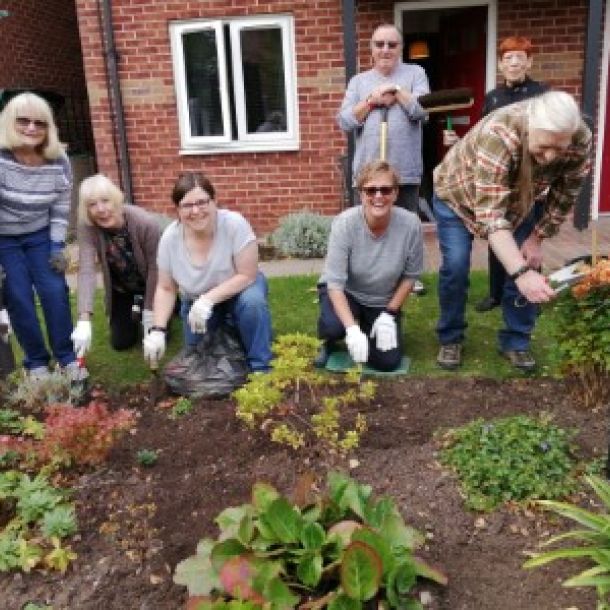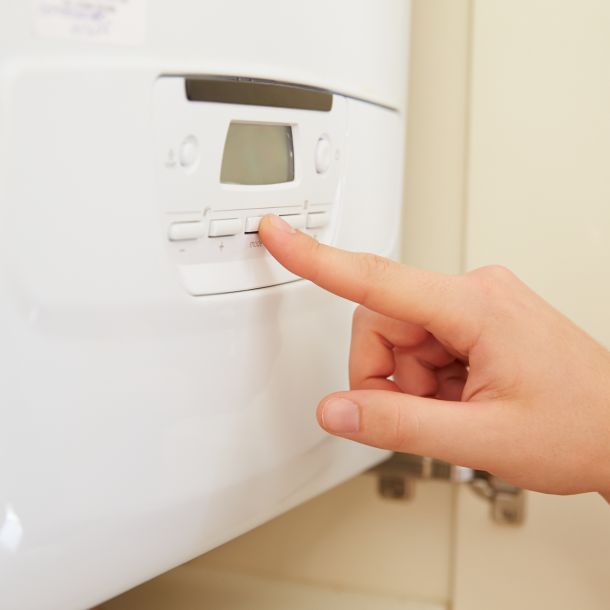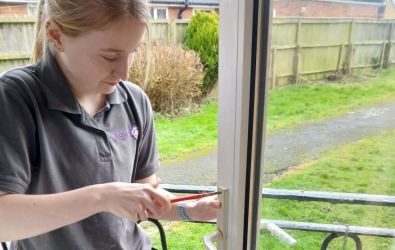Get Winter Ready
As the temperature drops there are things we can all do to ensure we stay warm and safe over the winter months.
The rise in energy bills and the ongoing cost of living crisis means it’s more important than ever that we do all we can to keep our homes warm and safe during winter.
The sections below offer information to help you prepare, save money and stay safe.
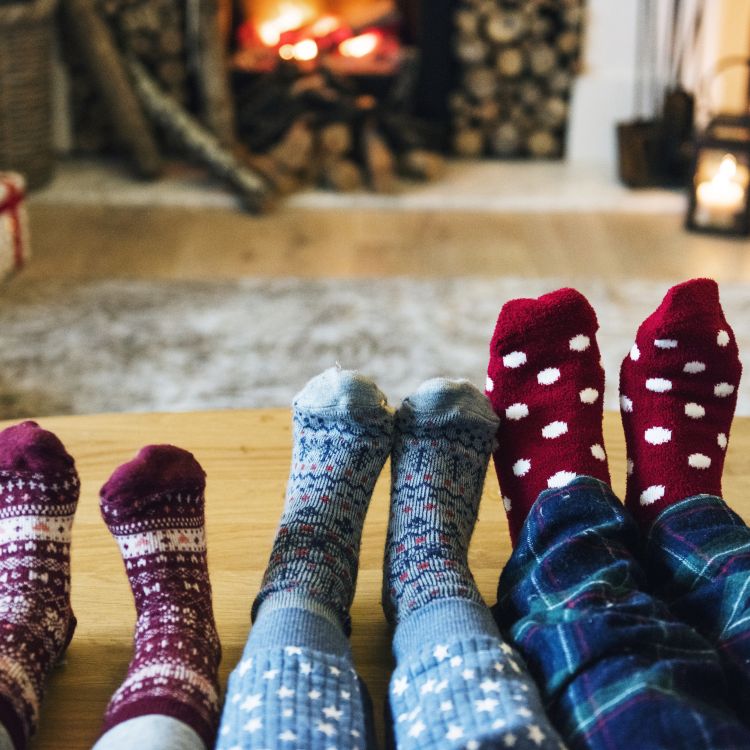
Staying Safe and Wellbeing Advice
It can be hard to stay healthy during the winter. Motivating ourselves to exercise is hard when it's cold and dark outside, and our appetite for comfort food increases.
Your winter health
Keep moving
Keeping active actually boost your immune function, You needn’t worry about joining a gym or donning the lycra and sweat bands! Everyday chores such as washing up and hoovering all count as physical activity.
Keeping active can lift your mood as well as boosting your energy levels. While you may not feel like it at the time, try to do little and often. If you are able to get up and walk around, this is an opportunity to make yourself a warm drink or snack.
Eat warm, Eat well
Hot meals and drinks help to keep you warm, so eat at least one hot meal each day and have hot drinks during the day. Keep basic and long life food items in the cupboard or freezer in case its too cold to go out shopping. You could also do your food shopping online and get it delivered to your door. Include a good range of foods in your diet and aim for at least five portions of fruit and vegetables each day, so that you’re getting plenty of nutrients and vitamins.
Frozen vegetables are as good as fresh, if not better. Your body needs proper nutrition at all times, but especially during cold and flu season when your immune system is under threat. You need to drink plenty too. Having a hot drink before bed and keeping one in a flask by your bedside can offer warmth, comfort and hydration if you wake early feeling the chill.
- Diet - the NHS website has some excellent advice on eating a balanced diet.
- Exercise - In addition to the NHS website there are lots of great online workout videos you could use to workout at home.
- Vaccinations - Flu vaccinations are available, for more information please click here.
- Norovirus, also called the "winter vomiting bug", is a stomach bug that causes vomiting and diarrhoea. It can be very unpleasant, but usually goes away in about 2 days. Find out more here.
- Budget dinners how to make balanced meals on a tight budget:
How to eat for less than £2.35 a day - BBC Food
Mental Health
Winter can make us feel low
- For information on how to keep the blues away this winter Beating the winter blues | NHS inform
- Find out how to help lonely or socially isolated elderly people in your community, including volunteering for organisations that support older people here
When the longer winter nights arrive, take a fresh look at your home security and remind yourself of how to stay as safe as possible when out and about.
At home
- Keep front and back doors locked at all times and keep keys and valuables out of sight and reach from cat flaps, letterboxes, and downstairs doors and windows
- If you’re out in the evening make sure you leave an energy-saving light on or a battery powered candle, and draw the curtains. If it’s dark before you get home, use timer switches to turn on energy-saving lights
- Light up your front door with solar dusk to dawn lighting – make sure it’s visible from the street
- Make sure your home is visible from the street by keeping bushes and fences less than one metre high at the front of your property
- Don’t forget about garages, sheds and outbuildings – make sure they’re locked and secure too
- Try not to leave your house in silent darkness. Just leaving a radio on could make a potential burglar think twice.
- Never leave a spare key outside your house, burglars know all the usual hiding spots
- Keep bins away from windows when they’re not being used as they can be used as a climbing aid for burglars
- Consider joining or setting up a Neighbourhood Watch scheme. Click here to find your local scheme.
Out and about
- Plan ahead before you go out. Know where you’re going, how you’ll get there, and how you’ll get back. Let someone know where you’re going, and be prepared for a change of plan
- Keep your purse or wallet and keys close and secure. Only take out essential items, and if you can leave valuables at home, do
- When you’re out, always walk with confidence, and stick to well-lit, busy areas, using the route you know best
- Avoid quiet or badly-let alleyways, subways or isolated car parks. Walk down the middle of the pavement if the street is deserted
- Remain aware of your surroundings – don’t walk along texting, making a phone call or listening to music. As well as being distracting, this advertises your valuable to criminals
- Trust your instincts – if you don’t feel safe then change your route, remembering to stay in well-lit and busy areas. Don’t be tempted to take short cuts
- Be a good friend and stay safe by sticking together. Always avoid walking alone at night
- If you regularly walk home in the dark, get a personal attack alarm – they are widely available and inexpensive
- If you regularly jog or cycle, vary your route and times you go out, particularly if you go alone. Try to avoid wooded or remote areas and stick to well-lit roads, or main paths and open spaces. Stay fully alert of your surroundings and don’t use headphones
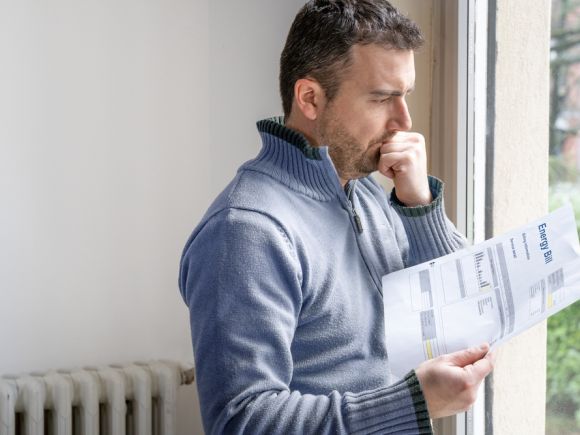
Cost of Living Advice
Within this dedicated cost of living area, you will find lots of useful information about what financial support is available, what help and advice we can offer and also where you can go to find specialist guidance.
Benefits and help
Household Support Fund
You may be able to get help with essential costs from your local council. This is sometimes known as ‘the Household Support Fund’. This could help if you’re struggling to afford things like:
- energy and water bills
- food
- essential items
Find out more on the official Government website here
Warm Home Discount
The Warm Home Discount Scheme is a one-off £150 discount off your electricity bill.
You’ll usually get the discount automatically if you’re eligible, and your electricity supplier will apply the discount to your bill. The money is not paid to you.
Winter Fuel Payment
If you were born before 22 September 1959 you could get between £100 and £300 to help you pay your heating bills for winter 2025 to 2026. This is known as a ‘Winter Fuel Payment’.
Find out more about the Winter Fuel Payment, and see if you are eligible here
Cold weather payment
Cold Weather Payments are different to Winter Fuel Payments, and if you’re eligible, you’ll get these payments automatically.
You may be eligible for a Cold Weather Payment if you’re getting:
- Pension Credit
- Income Support
- Income-based Jobseeker’s Allowance
- Income-related Employment and Support Allowance
- Universal Credit
- Support for Mortgage Interest
If you’re more than 10 weeks pregnant or have a child under 4, the Healthy Start scheme can help you:
- buy healthy foods such as milk or fruit
- get free vitamins
You need to be claiming certain benefits to qualify.
If you’re under 18 and more than 10 weeks pregnant, you can claim even if you do not receive any benefits.
You can find out more information about the scheme on the NHS Healthy Start website.
Social tariffs are cheaper broadband and phone packages for people claiming Universal Credit, Pension Credit and some other benefits. Some providers call them ‘essential’ or ‘basic’ broadband.
you could save around £180 a year on broadband by switching to a social tariff. All you need to do is check your provider offers a social tariff, if they don’t you can switch to one that does.
If you think you are eligible, please visit the ofcom.org.uk website.
